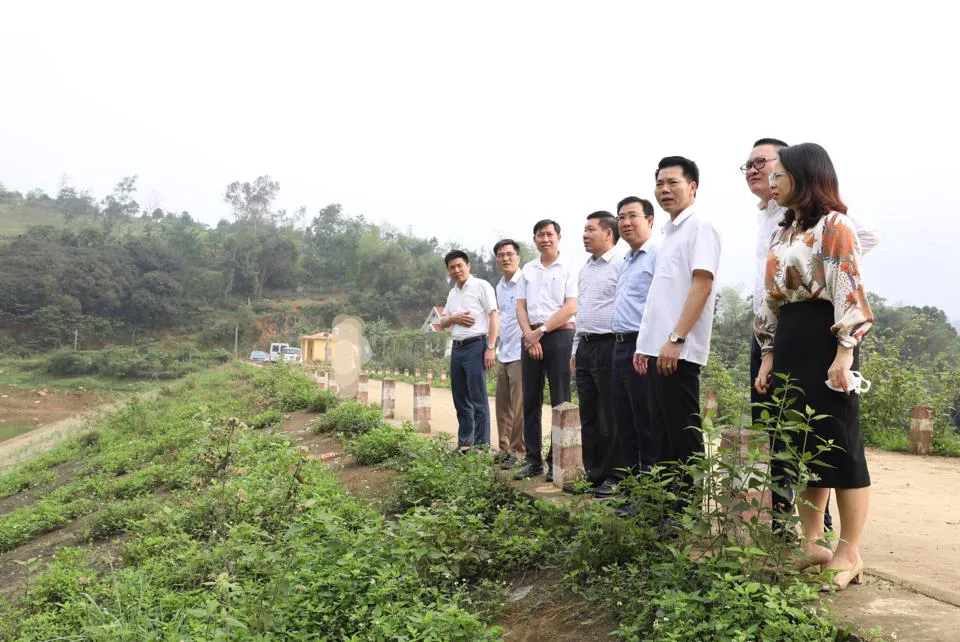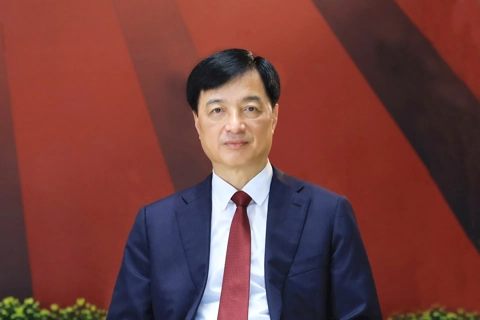Nearly US$37 million spent on development of ethnic minority areas in Hanoi
The projects have positively impacted the living conditions of the ethnic minority population in Hanoi.
Since 2021, Hanoi has spent about VND862.3 billion (US$36.7 million) on the socio-economic upliftment of ethnic minorities in the city's mountainous areas.
| Municipal officials inspect infrastructures built in Dong Xuan Commune of Quoc Oai District. Photo: The Hanoi Times |
Data released at a meeting on April 18 to discuss the Socio-Economic Growth Program for Hanoi's Ethnic Minorities in 2021-2030 showed that disbursement had reached 92% of the plan, and nearly 90 projects were underway.
The projects focus on key issues such as the provision of housing and production land, the supply of clean water, the development of agriculture, forestry, tourism and handicraft villages, education and training, the preservation of ethnic cultures, and equality for women and children.
The projects have improved the living conditions of ethnic people in Hanoi. Their average per capita income reached VND50-60 million (US$2,130-2,550) per year, and the rate of poor households decreased from 0.53% in 2021 to 0.42% in 2022.
Hanoi is home to 13 ethnic minority communes in the four districts of Ba Vi, My Duc, Quoc Oai, and Thach That. These communes qualified for the national health care and new rural standards. The percentage of schools meeting national standards was 70%. Their cultural characteristics and values have also been preserved and developed.
However, challenges remained. Several projects were delayed due to slow budget disbursement. Some project plans had to be revised, while others encountered administrative and planning problems.
The Department for Ethnic Minorities had submitted a proposal to the Central Committee for Ethnic Minority Affairs to develop a database containing information on ethnic minorities. Other issues that needed to be addressed included gender equality, the prevention of consanguineous marriages, and vocational training.
Head of the Social and Cultural Department of the Hanoi People's Council, Nguyen Thanh Binh, said the capital city is the first place in Vietnam to implement such a program to benefit local ethnic minorities.
The projects have facilitated the comprehensive development of local people in mountainous areas, accelerated the construction of transportation systems for these areas, improved the living conditions of local people, and better preserved local cultures, he said.
For better performance and achievement of set goals, Binh asked local authorities to report their obstacles to the city government, especially the adjustment of project plans.












